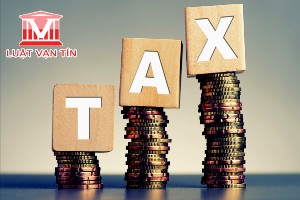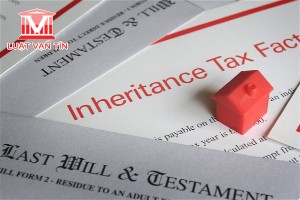TAX ADVICE ON INCOME FROM THE SALARY, WAGES IN VIETNAM
I. Who has to pay personal income tax?
Vietnamese or foreigners receiving wages and salaries in Vietnam are all subject to personal income tax.
II. How much of a salary must be paid in personal income tax?
Accordingly, employees who earn a salary of over 11,000,000 million VND/month and have no dependents must pay tax.
The family circumstance-based deduction is the amount deducted from taxable income before tax calculation for income from business, salaries, and wages of taxpayers who are resident individuals.
Salary table subject to personal income tax in 2022
Here is a reference spreadsheet for you to determine for yourself how much income must be paid in personal income tax:
|
STT |
Number of dependents |
Income received from salary, wages / month |
Total income received from salary, wages / year |
|
1 |
No dependents |
> 11 million VND |
> 132 million VND |
|
2 |
Have 01 dependent |
> VND 15.4 million |
> VND 184.8 million |
|
3 |
There are 02 dependents |
> VND 19.8 million |
> VND 237.6 million |
|
4 |
There are 03 dependents |
> VND 24.2 million |
> VND 290.4 million |
|
5 |
There are 04 dependents |
> VND 28.6 million |
> VND 343.2 million |
Note: The income in the table is in the table, and the income from the salaries and wages has been subtracted by the following clause:
-
Insurance contributions, voluntary pension funds, charitable contributions, educational promotions, humanitarians.
-
Income is exempt from personal income tax.
-
Items excluding personal income tax, such as some allowances, subsidizes, lunch, ...
Specifically:
The deduction for family circumstances for taxpayers is 11 million VND/month (132 million VND/year);
The deduction for each dependent is 4.4 million VND/month.
Thus, for people with a salary of more than 11 million VND/month (132 million VND/year), the compulsory social insurance contributions, voluntary retirement fund contributions, and charitable contributions have been deducted according to regulations. If there are dependents, they do not have to pay personal income tax.
In case an employee has one dependent equivalent to a salary of over 15.4 million VND/month, he must pay tax, and if he has two dependents equivalent to a salary of over 19.8 million VND/month, he must pay tax. Just like that, the more dependents there are the higher the taxable salary, according to regulations.
III. Who is exempt from paying personal income tax?
For income amounts from salaries, wages under 11.000.000 VND/month are not subject to personal income tax.
Below are the allowances and benefits that are not subject to personal income tax, they are deducted when calculating taxable income:
(4) Toxic and dangerous allowances for industries, occupations, or jobs in the workplace with hazardous and dangerous elements.
(5) Attraction bonus; regional bonus
(6) Unexpected hardship allowance, labor accident allowance, occupational disease allowance, one-time allowance for childbirth or child adoption, maternity benefit, convalescence and health rehabilitation allowance post-maternity allowance, benefits due to working capacity decline, lump-sum retirement allowance, monthly survivorship allowance, severance allowance, job loss allowance, unemployment benefit, and other allowances as prescribed by the Labor Code and the Law on Social Insurance.
(7) Subsidies for beneficiaries of social protection as prescribed by law.
(8) Serving bonus for senior managers.
(9) One-time allowance for individuals when moving to an area with extremely difficult socio-economic conditions, one-time support for civil servants working on sovereignty over seas and islands as prescribed by law
(10) One-time roaming allowance for foreigners coming to reside in Vietnam, Vietnamese going to work abroad, Vietnamese people residing abroad long-term to return to Vietnam to work.
(11) Allowances for village health workers.
(12) Industry-specific allowances.
IV. How to calculate personal income tax?
Assessable income and tax rate schedule
|
Tax scale |
Assessable income /month (million) |
Tax rate (%) |
|
1 |
Up to 5 |
5% |
|
2 |
Over 5 to 10 |
10% |
|
3 |
Over 10 to 18 |
15% |
|
4 |
Over 18 to 32 |
20% |
|
5 |
Over 32 to 52 |
25% |
|
6 |
Over 52 to 80 |
30% |
|
7 |
Over 80 |
35% |
Tax calculation:
PIT = Assessable income x tax rate
Assessable income= Taxable income – Deductions
Assessable income= Total income – Tax-free amount
Deductions include:
• Deduction for the taxpayer himself: The deduction level is 11,000,000 VND/month,
• Family circumstances deduction for dependents: The deduction for each dependent is VND 4,400,000/month.
• Compulsory insurance, voluntary pension fund: social insurance (8%), health insurance (1.5%), unemployment insurance (1%).
• Charity, humanitarian, and study promotion donations
From the above regulations, if the total income from salary and wages received by the employee is deducted (-) from tax exemptions and deductions (11,000,000 VND/month deduction for himself, 4,400,000 VND/month for each dependent, social insurance, etc.) but still positive (>0), then personal income tax must be calculated. That is, if taxable income > 0, then it is necessary to determine the amount of tax payable.
Thus, to be able to pay personal income tax, income from salaries and wages must be greater than 11,000,000 VND per month (with no dependents). If there is one dependent, the income must be over VND 15,400,000/month to qualify for personal income tax.
Example: On January 31, 2022, Mr. Nguyen Van A was paid a salary of 18.3 million VND in January.
In which:
-
Basic salary (insurance participation salary: 6.000.000)
-
Meal support: 700.000
-
Phone support: 1.000.000,
-
Fuel for traveling support: 3.000.000
-
Child nursing support: 3.600.000
-
Bonus: 4.000.000
-
The insurances to be paid are: 10.5% (social insurance: 8%, health insurance: 1.5%, unemployment insurance: 1%) on the salary participating in insurance is: 6,000,000 = 630,000
-
Mr. A has a little child ( registered for family deduction)
To determine whether personal income tax is payable or not, you shall implement as follows:
-
Taxable income=18.300.000 – (700.000+1.000.000) = 16.600.000
-
PIT Assessable income =16.600.000-(11.000.000+4.400.000+630.000)= 570.000 (>0, so Mr. A has to pay tax).
-
PIT Mr. A has to pay is:
Way 1:
Assessable income=570.000 (on scale 1: “up to 5 million (Mill dong)
-
PIT payable= 0 mill+ 5% assessable income (ASI)
= 0+ (5% x 570.000)= 28.500
Way 2: (This way is faster when calculating taxes for individuals who have many scales)
Assessable income= 570.000 (on scale 1: “up to 5 million (mill dong)”)
-
PIT payable= 5% assessable income (ASI)
=5% x 570.000= 28.500
As a result, Mr. A had to pay 28.500 VND in PIT in January.
From July 1, 2020, individuals with an annual tax payable after finalization of personal income tax from salaries and wages of 50,000 VND or less will be exempt from paying personal income tax finalization.
V. What are the bases for calculating personal income tax?
5.1 Residents with labor contracts of 3 months or more
Formula for calculating PIT payable: PIT payable = Taxable income * Tax rate (c)
In there,
Assessable income = Taxable income - Deductions (b)
Taxable income = Total income (a) - Taxable income - Non-taxable income
Specifically:
- (a) Total income: the incomes that employees receive from their employer, which include: salary, wages, and other income, whether in the form of money or not, support amounts, bonus,…
- (b) Deductions: deduction amounts will include deductions for family circumstances and deductions for required insurances.
- (c) The tax rate will be incremental tax:
Based on each progressive tax part, the personal income tax calculation formula is determined as follows:
Level 1: PIT assessable income is from 0 to 5 million VND/month is applied at a tax rate of 5% => PIT payable: 0 million VND + 5% of assessable income.
Level 2: PIT assessable income is from 5 to 10 million VND/month is applied at a tax rate of 10% => PIT payable: 0.25 million VND + 10% of assessable income
Level 3: PIT assessable income is from 10 to 18 million VND/month is applied at a tax rate of 15% => PIT payable: 0.75 million VND + 15% of assessable income.
Level 4: PIT assessable income is from 18 to 32 million VND/month is applied at a tax rate of 20% => PIT payable: 1.95 million VND + 20% of assessable income.
Level 5: PIT assessable income is from 32 to 52 million VND/month is applied at a tax rate of 25% =>PIT payable: 4.75 million VND + 25% of assessable income.
Level 6: PIT assessable income is from 52 to 80 million VND/month is applied at a tax rate of 30%=> PIT payable: 9.75 million VND + 30% of assessable income.
Level 7: PIT assessable income is over VND 80 million/month is applied at a tax rate of 35%=> PIT payable: VND 18.15 million + 35% of assessable income.
5.2. Resident individuals who do not sign a labor contract
Personal income tax payable by residents who do not sign labor contracts is calculated at 10% of total income. Specifically:
Individuals and organizations that pay wages, remunerations, or other types of money to resident individuals who do not sign labor contracts or sign labor contracts for less than 3 months and have a total income of at least 2 million VND/time or more, will have to withhold 10% tax on the total income.
5.3. Personal Income Tax for Non-Resident Individuals
PIT from wages and salaries of non-resident individuals is determined by taxable income from wages and salaries (x) at the 20% tax rate.
Taxable income from wages and salaries of non-resident individuals is determined as for PIT taxable income from wages and salaries of resident individuals.
Thus, the formula for calculating PIT for resident individuals is as follows:
PIT payable = PIT taxable income (x) 20%.
In which: Taxable income = Total income - Non-taxable incomes - Incomes exempt from PIT.
VI. Procedure on personal income tax paying
Pay personal income tax
6.1. Deadline for personal income tax finalization
The deadline for submitting tax returns and paying tax upon self-settlement is April 30th every year.
6.2. Regulations on self-settlement of personal income tax
* Cases of self-settlement of tax
- Being authorized to finalize tax but not authorizing.
- Must directly declare final settlement with tax authorities (not authorized).
According to Clause 3, Article 21 of Circular 92/2015/TT-BTC, residents earning income from salaries and wages are responsible for making tax finalization declarations if there is additional tax payable or an overpaid tax amount requested. Refund or offset in the next tax period must declare the final settlement directly to the tax agency, except for the following cases:
+ Individuals with a payable tax amount less than the temporarily paid amount, without any requirement for a tax return or an offset to the following period
+ Individuals earning salaries and wages, signing labor contracts for 3 months or more at an organization, and having current incomes of less than 10 million VND elsewhere in the year who have been paid income-paying units withhold tax at the source at a rate of 10%. If no request is made, they do not need to finalize the tax on this income.
+ Individuals whose employer purchases life insurance (except voluntary retirement insurance) or other optional insurance with accumulated premiums from which the employer or insurance enterprise has deducted personal income tax at a rate of 10% on the insurance premium amount corresponding to the employer's part, as guided in Clause 2 and Article 14 of Circular 92/2015/TT-BTC, are exempt from tax finalization with this income.
*Self-settlement tax procedures
Step 1: Preparing documents
Individuals declare tax finalization directly to the tax department according to the following form:
- Tax finalization form No. 02-1/BK-QTT-TNCN issued along with Circular 92/2015/TT-BTC.
- Appendix no.02-1/BK-QTT-TNCN issued along with Circular 92/2015/TT-BTC if there is registration of deduction for dependents.
- Photographs of the documents proving the amount of tax already withheld, temporarily paid in the year, and tax paid abroad (if any).
- Photographs of invoices and documents proving charitable, humanitarian, and study promotion donations (if any).
- In cases where individuals earn income from worldwide organizations, embassies, and consulates and receive income from foreign countries, they must have proof-of-payment documents about the amount paid by the organization in the foreign country.
Step 2: Submit tax finalization document
-
Individuals earning salaries and wages directly declare tax; the Department of Taxation, where the individual filed the tax return for the year, is the location to submit the tax finalization dossier.
-
Individuals who earn income from salaries or wages in two or more places must directly declare taxes to the tax department. They shall submit tax finalization dossiers as follows:
+ Individuals who have calculated deductions for their family circumstances at any income-paying organization or individual shall submit a tax finalization dossier to the tax agency directly managing such an income-paying organization or individual.
In case an individual changes jobs and is hired by an organization or individual that pays his/ her final income with deductions for his /her family circumstances, he/ she must submit a tax finalization dossier to the tax authority in charge of the final paying organization or individual.
If an individual changes jobs and the final paying-income organization or individual did not deduct his/her family circumstances, he/she shall submit the tax finalization declaration dossier to the sub-tax authority where the individual resides. (Permanently or temporarily)
+ In case an individual has not yet calculated the deduction for his/her family circumstances at any income-paying organization or individual, the tax finalization dossier shall be submitted at the Tax Department where the individual resides (permanently or temporarily).
- In case an individual does not sign a labor contract, signs a labor contract of less than 3 months, or signs a service provision contract with income at one or many places that is deducted at the 10% tax rate, the tax finalization shall be made at the branch office of the tax department where the individual resides (permanent or temporary residence).
- An individual who earns income from salaries or wages in one place or many places during the year, but who at the time of finalization does not work at any income-paying organizations or individuals, tax finalization filings shall be submitted to the Sub-Department of Taxation where the individual resides (permanent or temporary residence).
VII. How to declare and pay personal income tax
If an individual earns income from commissions and he/she is subject to declaring tax directly to the tax office, he/she needs to follow the following order:
Step 1: Prepare the tax declaration documents (according to Form No. 02/KK-TNCN below).
Step 2: Submit documents.
After preparing the tax return documents, the tax declarer will submit this file to the Tax Department, which directly manages the place where the individual works or the place where his/her job arises in Vietnam.
Note: The obligation to submit tax declarations is no later than the 30th day of the quarter following the quarter in which the tax liability arises.
Step 3: Get the result
After submitting the tax return, if the individual is subject to paying additional personal income tax, the individual must pay tax to the nation’s budget within the last day of the deadline for submitting the tax return.
VIII. Time limit for personal income tax declaration
The time limit for paying personal income tax includes the time limit for declaration and payment by month or quarter and the time limit for tax finalization by year, in which:
- Tax declaration and payment by month or quarter are done on the basis of income in the month/quarter.
- Tax finalization is the determination of the payable tax amount of the tax year: If the tax is overpaid or not up to the taxable level and there is a request for tax refund, it will be refunded, if the outstanding amount has not yet been paid in full, it must be paid in full.
* Time limit for temporary tax payment by month, by quarter
- For the case of a monthly personal income tax payment: no later than the 20th day of the month following the month in which the tax liability arises.
- For the case of a quarterly personal income tax payment: no later than the last day of the first month of the quarter following the quarter in which the tax liability arises.
* Tax finalization deadline
- If the individual authorizes the organization or individual paying income to finalize tax, the deadline for personal income tax finalization is March 31st every year.
- If an individual directly settles personal income tax with the tax agency, the deadline for tax finalization is April 30th every year.
IX. Is personal income tax from commissions refundable?
There are 3 cases where individuals are entitled to a PIT refund, including:
- The paid individual tax amount is larger than the actual payable tax amount;
- The individual's overpaid tax amount does not offset the payable tax amount for the next period;
- The individual has paid personal income tax but has a taxable income that is not up to the taxable level;
- Other cases under the decisions of competent state agencies.
- Conditions to be refunded personal income tax from commissions
Specified in Clause 2,3 Article 28, Circular 111/2013/TT-BTC stipulating on tax refunding as follows:
"2. For individuals who have authorized tax finalization for income-paying organizations or individuals to make the final settlement, the individual's tax refund shall be affected through the income-paying organizations or individuals. Income-paying organizations and individuals shall offset the overpaid and underpaid tax amounts of individuals. After clearing, if there is any overpaid tax, it will be offset in the next period or refunded if there is a request for a refund.
3. Individuals who declare directly to tax authorities can choose to refund or offset tax in the next period at the same tax authority."
Thus, according to the above regulations, it can be understood that if there is no request for a PIT refund, the overpaid tax amount will be automatically offset in the next payment period and the tax authority will not actively refund.
For individuals who have authorized tax finalization for income-paying organizations or individuals to make the final settlement, the individual's tax refund shall be affected through the income-paying organizations or individuals.
For individuals who directly settle with the tax authorities, they can receive the overpaid tax amount back or choose to offset it with the payable tax amount of the next period.
On the tax refund, the tax refunded persons must ensure:
-
The amount of personal income tax paid in the period is larger than the payable tax amount when finalizing.
-
Already have a tax identification number at the time of requesting a tax refund.
LVT Lawyers with a team of lawyers with many years of experience in tax advice for foreigners in Vietnam. Along with the enthusiasm and dedicated work, we assure we always put the interests of clients at the top to fit the motto "Our services, your success".
Please contact LVT Lawyers to get your tax advice!




